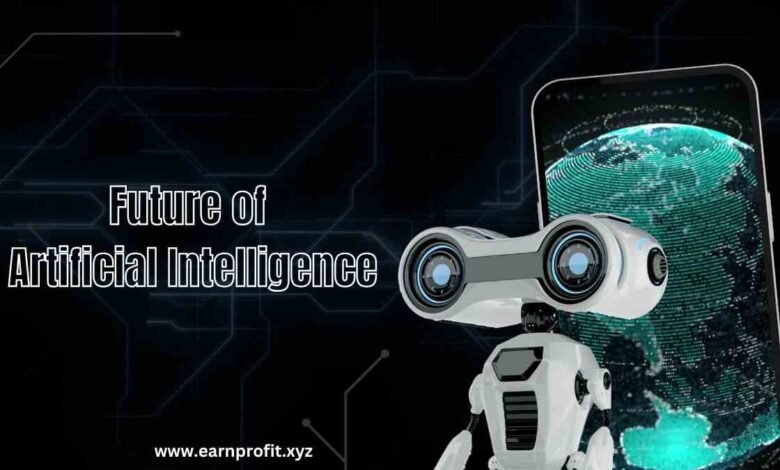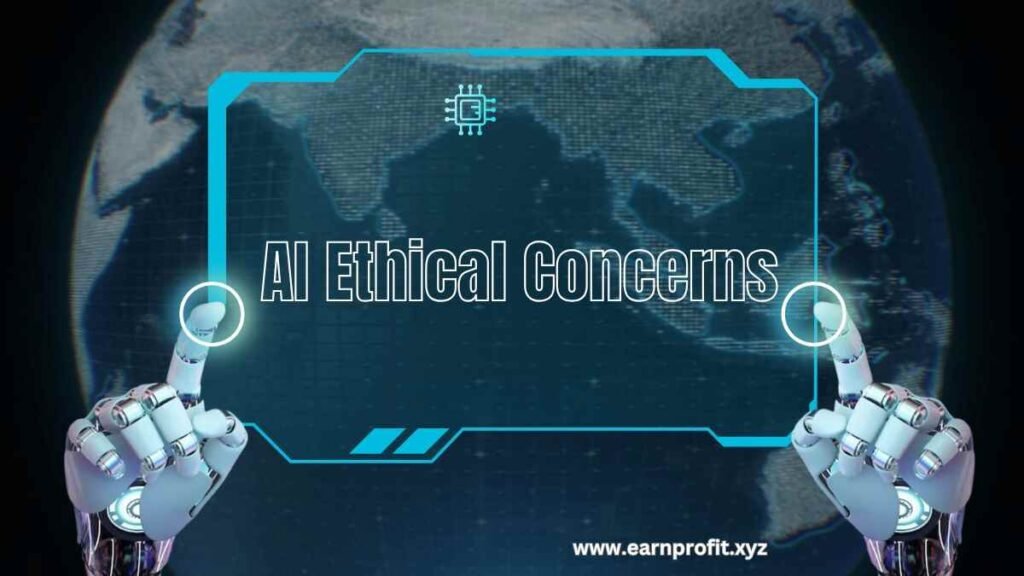Future of Artificial Intelligence: Ultimate Intersection of AI

Future of artificial intelligence it’s a fundamental part of our present, shaping industries and influencing daily life. With rapid advancements in technology, AI is evolving faster than ever before. This transformation promises innovations across various sectors, including healthcare, automation, and ethical decision-making. In this article, we’ll explore the future of artificial intelligence, its potential, and the challenges it may face.
AI Advancements
From self-driving cars to virtual assistants like Siri and Alexa, AI’s presence is felt across all sectors. Today’s AI systems can analyze massive amounts of data, recognize patterns, and make decisions faster than humans in certain contexts. One of the key AI advancements is in Natural Language Processing (NLP). Tools like OpenAI’s GPT-4 and Google’s BERT are prime examples of how AI can now understand and generate human-like text. This has vast applications in customer service, content creation, and even legal document analysis. Moreover, AI’s role in computer vision is growing, with facial recognition, object detection, and autonomous vehicles relying on it. The technology is becoming more accurate, enabling seamless integration into industries like security, retail, and logistics.
The Future of Machine Learning
Machine learning (ML), a subset of AI, has been at the forefront of AI innovations. But what’s next? The future of machine learning is expected to see even more unsupervised learning. In traditional ML, systems need labeled data to learn effectively. However, with unsupervised learning, machines can recognize patterns in vast datasets without human intervention. This opens doors to faster, more efficient models capable of tackling complex problems like climate change or financial forecasting. Additionally, reinforcement learning is another promising area. In this model, machines learn by interacting with their environment, making decisions to achieve a goal.
AI in Healthcare: Future of Artificial Intelligence
The healthcare industry is already experiencing the transformative power of AI, and the future looks even more promising. From diagnosing diseases to personalized treatment plans, AI is revolutionizing healthcare in several ways. One of the most exciting applications is in predictive analytics. By analyzing patient data, AI can predict the likelihood of diseases such as heart attacks or diabetes. This can help healthcare providers take preventive measures, potentially saving millions of lives. Moreover, AI-powered medical imaging tools can assist doctors in detecting abnormalities like tumors, fractures, or infections with greater accuracy than human radiologists. This not only speeds up diagnosis but also reduces the risk of human error. Another fascinating development is in drug discovery.
Must Visit: Earn Profit
AI Ethical Concerns

As AI continues to advance, ethical concerns surrounding its use are becoming more pressing. One of the primary issues is the bias in AI algorithms. Since these systems learn from historical data, they can sometimes inherit biases related to gender, race, or socioeconomic status. For example, AI used in hiring processes may inadvertently favor certain demographics, leading to unfair treatment of others. Another major concern is privacy. With AI systems capable of analyzing massive amounts of personal data, there’s a growing fear about how this data is stored, shared, and used. Governments and organizations must create strict regulations to ensure personal data is protected. The rise of AI in military applications also poses ethical dilemmas. Autonomous weapons, powered by AI, could be programmed to carry out attacks without human intervention.
AI and Automation
Automation is one of the most transformative applications of AI, with industries worldwide leveraging it to streamline processes and reduce human labor. From manufacturing to customer service, AI-powered automation is reshaping the future of work. In manufacturing, robotic process automation (RPA) is making factories more efficient. Machines equipped with AI can now perform tasks like assembly, quality control, and packaging faster and more accurately than humans. This not only increases productivity but also reduces errors, leading to cost savings for businesses. In customer service, AI chatbots are revolutionizing how companies interact with their customers. These bots can answer common queries, provide product recommendations, and even resolve complaints without the need for human agents. As AI systems become more advanced, these bots will likely handle more complex tasks, improving customer experience while reducing operational costs.
The Road Ahead

As AI continues to develop, it’s clear that its role in society will only grow. Education, for instance, is one sector that stands to benefit greatly from AI. Personalized learning systems, powered by AI, can adapt to each student’s pace and learning style, offering customized support that traditional classrooms can’t match. In transportation, self-driving cars will likely become the norm in the next decade. Companies like Tesla and Waymo are already testing autonomous vehicles, and as the technology improves, we could see a future where car accidents caused by human error become a thing of the past. Additionally, AI could play a significant role in addressing global challenges like climate change. AI systems can analyze vast amounts of environmental data, helping scientists predict climate patterns, assess the impact of policy changes, and even discover new ways to reduce carbon emissions.
Conclusion
The future of artificial intelligence is both exciting and challenging. While AI advancements promise to revolutionize industries like healthcare, automation, and education, ethical concerns and the potential impact on jobs cannot be ignored. As we continue to push the boundaries of what AI can achieve, it’s essential to ensure that this technology is used responsibly, for the benefit of all.
FAQs
How will AI impact jobs in the future?
AI is likely to automate many routine tasks, potentially leading to job displacement in some sectors. However, it could also create new opportunities in fields like AI development, data analysis, and cybersecurity.
What are the biggest challenges facing AI development?
The primary challenges include ethical concerns like bias and privacy, as well as the need for regulations to govern AI use, particularly in areas like military applications and data protection.
Can AI fully replace doctors in the future?
While AI can assist doctors in diagnostics and treatment planning, it is unlikely to fully replace human doctors due to the need for human judgment and empathy in patient care.
How does AI benefit industries like healthcare and manufacturing?
In healthcare, AI improves diagnostics, drug discovery, and personalized medicine. In manufacturing, it enhances productivity, reduces errors, and lowers operational costs.
Is AI dangerous?
AI, like any powerful technology, has risks, particularly when used irresponsibly or without proper regulations. However, with the right safeguards, AI has the potential to significantly improve many aspects of society.
Read More: Digital Marketing with Google Ads





